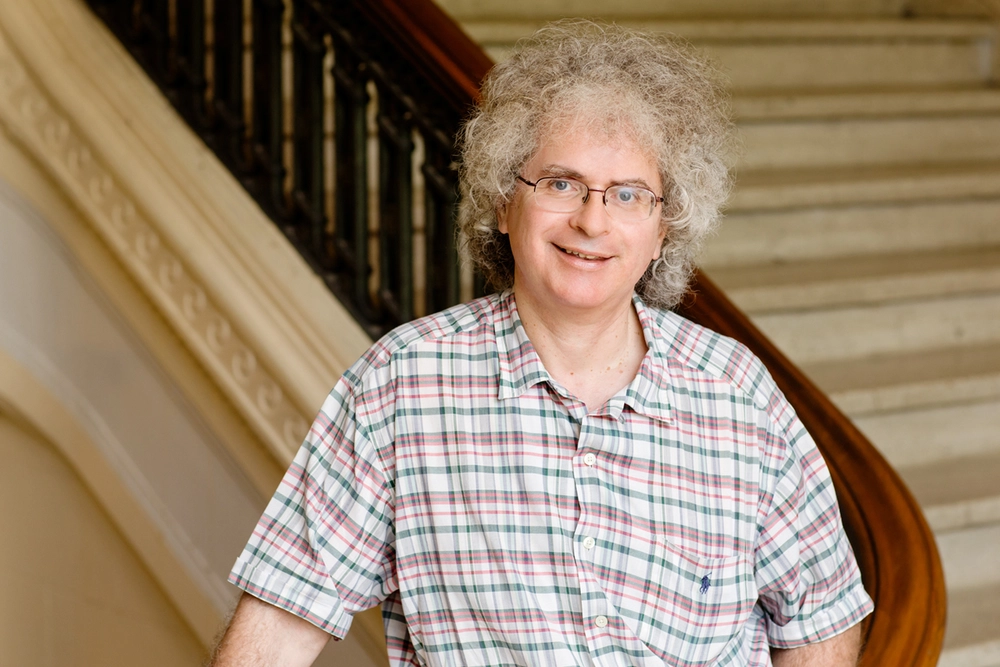
REEEC faculty affiliate Richard Tempest (Professor of Slavic Languages and Literatures) was recently interviewed by the University of Illinois News Bureau about Alexei Navalny's arrest and prison sentence, and the huge protests across Russia. To read the original article, please see https://news.illinois.edu/view/6367/1221452842.
How will imprisonment of Russian dissident Alexsei Navalny affect opposition to Putin?

Russian opposition leader Alexsei Navalny – the main political opponent of Russian President Vladimir Putin who has exposed government corruption – recently was sentenced to more than two years in prison. Navalny survived being poisoned in August, which many believe was a state-ordered assassination attempt. Tens of thousands of people across Russia protested after Navalny was taken into custody in January and when he was sentenced to prison Feb. 2. Slavic languages and literatures professor Richard Tempest – an expert on Putin and charismatic politics – spoke about Navalny with News Bureau arts and humanities editor Jodi Heckel.
What is Navalny’s appeal to disparate groups of people in Russia?
Navalny is one those really charismatic politicians. People respond to him on an emotional level, and he can mobilize supporters across different demographics. In recent months, Navalny has been able to find points of contact with many more people in Russia than he used to. It’s a period of transition for that country – worsening relations with the outside world, worsening economic conditions, a brewing sense of indignation about corruption that’s so prevalent in Russia. And also, especially for young people, boredom with the same faces in government, many of whom were already there in the late 20th century.
When you look at the people who support Navalny, a substantial number are not that interested in democracy and free speech and the separation of powers. They are upset about injustice and corruption and the same people being at the top for two decades or more. He knows how to appeal to those people, too. And he is particularly skilled at reaching younger people and even teens.
Navalny is an ambitious, clever and determined politician. The people in the Putin administration are not politicians. They are not comfortable with the give-and-take of public political life. Navalny knew he was going to be arrested upon his return to Russia. He flew to Moscow on a budget airline named Pobeda, or Victory. He arranged for the movie about Putin’s alleged residence to be released as soon as he was arrested. He has political skills that in the ruling elite in Russia have atrophied, if they ever existed.
How will Navalny be able to communicate with his supporters from prison?
My sense is that he will be able to maintain contacts and his public profile, as has been the case so far. Now that he’s in prison, he’s supposedly cut off from direct communication, but he’s able to get out statements pretty effectively to keep himself at the center of public attention.
Why did Navalny receive a substantial prison sentence, rather than a short sentence as he’s received numerous times in the past or house arrest? Do you expect him to survive his prison sentence?
This is happening not in a vacuum, but in a situation where the ruling elites are working out a mechanism for the transfer of power. Putin has been president for 20 years, he’s approaching 70 and the state of his health is subject to a great deal of speculation. Navalny, as a symbolic figure and an opposition figure, enjoys the explicit support of the West. That can become a very important factor as the transfer of power to a new Russian ruler proceeds.
Putin is not massively worried about him, but there is concern. The prison sentence takes him out of circulation for the upcoming parliamentary election, which must take place not later than September. Whether Putin continues in power or not, Navalny has to be prevented from taking part in the next presidential election as well.
Navalny is a very clever character. He’s gamed out the different scenarios. His own life and health will be protected, because it would make a terrible impression if he died in prison.
What needs to happen for protestors to bring about change or for Putin to be forced into giving up his presidency?
If the protests continue to focus on Navalny and his case and how it’s romantic and outrageous, they won’t get very far. There’s a pretty minute portion of the population protesting. These are not yet the truly mass protests that we saw in the late Soviet Union. They are way less impressive than that. Navalny will have to add economic questions to his agenda – economic equity, interest rates and mortgages that are extremely onerous, rejection of the government’s pension reform. Those issues could mobilize public opinion on a mass scale.
How do you expect President Biden’s administration to deal with Putin?
I think he will go back to the Obama position, to make the relationship predictable and emphasize the arms control aspect that unraveled under Trump and Putin. He’ll revisit arms control and issues that can be talked about. The U.S. needs Russian backing if it is going to rebuild a consensus about how to deal with Iran. Rhetorically, relations will calm down. Biden has other priorities. Russia is a much lower priority than China.
Editor’s note: To contact Richard Tempest, email rtempest@illinois.edu.